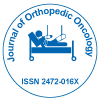当社グループは 3,000 以上の世界的なカンファレンスシリーズ 米国、ヨーロッパ、世界中で毎年イベントが開催されます。 1,000 のより科学的な学会からの支援を受けたアジア および 700 以上の オープン アクセスを発行ジャーナルには 50,000 人以上の著名人が掲載されており、科学者が編集委員として名高い
。オープンアクセスジャーナルはより多くの読者と引用を獲得
700 ジャーナル と 15,000,000 人の読者 各ジャーナルは 25,000 人以上の読者を獲得
インデックス付き
- Google スカラー
- レフシーク
- ハムダード大学
- エブスコ アリゾナ州
- OCLC-WorldCat
- パブロン
- ユーロパブ
- ICMJE
役立つリンク
オープンアクセスジャーナル
このページをシェアする
抽象的な
Brief Discussion on Metastatic Bone Osteolysis
Perez Jessica
Bone-resorbing osteoclast activation facilitates breast and prostate carcinoma bone metastasis. We have identified peroxiredoxin-4 (PRDX4) as a mediator of osteoclast genesis that is released by cancer cells through proteomics methods. Using immunoblotting and mass spectrometry, we now report the characterization of L-plastin in MDA-MB-231 human breast cancer cells’ conditioned media (CM). With L-plastin silenced by siRNA, the osteoclastogenic potential of MDA-MB-231 CM was significantly diminished. L-plastin was found in cancer-derived exosomes, and MDA-MB- 231 CM’s osteoclastogenic capacity was significantly diminished when exosomal release was inhibited. Recombinant L-plastin induced calcium/NFATc1-mediated osteoclastogenesis to levels comparable to continuous RANKL treatment when added to osteoclast precursors primed with RANKL for two days. We used ssRNA to generate MDA-MB-231 cells devoid of PRDX4, L-plastin, or both, and injected these cell populations into CD-1 immunodeficient mice via the tibia. When MDA-MB-231 cells lacking both L-plastin and PRDX4 were injected, micro-CT and histomorphometric analysis revealed a complete loss of osteolysis. Multiple human cancers, including breast and prostate carcinomas, showed an increase in L-plastin and PRDX4 mRNA expression, according to a meta-analysis. This study demonstrates that human breast cancer cells activate osteoclasts through the secretion of L-plastin and PRDX4.

 English
English  Spanish
Spanish  Chinese
Chinese  Russian
Russian  German
German  French
French  Portuguese
Portuguese  Hindi
Hindi